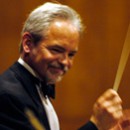Page 74 • (1,514 results in 0.029 seconds)
-
Writing Seminar (4): Students will learn strategies for writing, thinking, speaking and reading. They encounter writing as a way of thinking, of learning, and of discovering and ordering ideas. Working with interdisciplinary themes, students practice the various academic conventions of writing. After completing FYEP 101: Students will employ rhetorical strategies effective for a specific context, purpose, and audience. Students will articulate, develop, and support an argument, point of view, or
-
c. Performing a task related to the discipline of a student; or d. Providing a service or benefit relating to the student or student’s family, such as health care, counseling, job placement, financial aid, or writing letters of recommendation. 2. To officials of another school, upon request, in which a student seeks or intends to enroll. 3. To certain officials of the US Department of Education, the Comptroller General, and state and local educational authorities, in connection with certain
-
placement, financial aid, or writing letters of recommendation. 2. To officials of another school, upon request, in which a student seeks or intends to enroll. 3. To certain officials of the US Department of Education, the Comptroller General, and state and local educational authorities, in connection with certain state or federally supported education programs. 4. In connection with a student’s request for or receipt of financial aid, as necessary to determine the eligibility, amount, or conditions
-
QuestionsSpreadsheet of responses by category; percentage of students who responded in each Writing Sample/EssayRubric; spreadsheet of responses; average score, range of scores Self-ReflectionThematic analysis: list key themes from across responses; relate to learning outcomes. Performance-Based (presentation, project)1) Criterion-based 2) Rubric-based SurveyAggregation of survey responses; discussion InterviewThematic analysis: list key themes from across responses Keep in mind that, when we’re selecting
-
tools; and scientific writing/presentations. Students attend a weekly research seminar series by Columbia, CCNY and ASRC faculty, and present results at a daylong symposium at the end of the program. Summer 2020 research areas available: Synthesis, Characterization, and Theory of Molecular Cluster Materials | Synthesis, Characterization, and Theory of 2D Materials and Heterostructures | Nanoscale Optics | Nanoelectronics | Nano/Bio Systems Summer 2020 program dates: June 1, 2020 – August 1, 2020
-
. Other topics featured during the conference include visual arts during the Holocaust, a dramatic presentation of the writing of Anne Frank and approaches to teaching Holocaust history. The conference will also showcase the work of PLU faculty and students. This conference is free and all sessions are open to the public. Registration is requested. The program on Friday, March 18, is designed with educators in mind, and is focused on lessons of diversity and tolerance that can be learned through the
-
. Other topics featured during the conference include visual arts during the Holocaust, a dramatic presentation of the writing of Anne Frank and approaches to teaching Holocaust history. The conference will also showcase the work of PLU faculty and students. This conference is free and all sessions are open to the public. Registration is requested. The program on Friday, March 18, is designed with educators in mind, and is focused on lessons of diversity and tolerance that can be learned through the
-
. Other topics featured during the conference include visual arts during the Holocaust, a dramatic presentation of the writing of Anne Frank and approaches to teaching Holocaust history. The conference will also showcase the work of PLU faculty and students. This conference is free and all sessions are open to the public. Registration is requested. The program on Friday, March 18, is designed with educators in mind, and is focused on lessons of diversity and tolerance that can be learned through the
-

director of both the Hutchinson Symphony Orchestra in Kansas and, for fourteen years, the Keweenaw Symphony Orchestra in Michigan. His early research focused on orchestral music of the mid-eighteenth century. More recently, he has been researching and writing on the formation of vocational commitments for young musicians.
-
, trying to see why I couldn’t put a book down, and all the ways you can say something to subtly point a reader in a particular direction,” she says. PLU communications director Zach Powers ‘10 interviewed Matthias recently about her new literary fiction novel, The Runestone’s Promise. Matthias discussed how the novel has roots in her family’s history and what it’s like writing a novel set in 1799 Christiana (now Oslo). Read Previous PLU interns combat climate change one tree at a time Read Next
Do you have any feedback for us? If so, feel free to use our Feedback Form.


